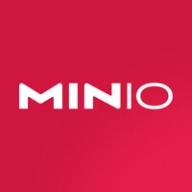


Dell PowerScale and MinIO compete in the large-scale storage solutions category. Dell PowerScale seems to have the upper hand in scalability and enterprise-level features, while MinIO excels in simplicity and cost-effectiveness for specific object storage needs.
Features: Dell PowerScale is renowned for scalability at a petabyte level, S3 protocol support, and advanced cybersecurity measures. It also offers efficient storage utilization and flexible tiering options. MinIO is appreciated for its high throughput, AWS S3 compatibility, and open-source availability. It provides strong support for object storage and is known for its ease of use.
Room for Improvement: Dell PowerScale could enhance its pricing structure, smaller environment deployment, and cloud integration. Users seek improvements in load distribution, the InsightIQ interface, and small file handling. MinIO could improve its monitoring capabilities, enterprise environment deployment processes, and performance for extensive data operations.
Ease of Deployment and Customer Service: Dell PowerScale often deploys on-premises, offering dedicated infrastructure and structured customer support, though with mixed feedback on response times. MinIO provides flexible deployment across on-premises and cloud environments, emphasizing community support, which may lack in dedicated enterprise support.
Pricing and ROI: Dell PowerScale's extensive features and scalability justify its high cost, offering a strong return on investment through management ease. Its pricing includes potential extra charges for extended features. MinIO stands out with a free open-source version, allowing significant cost savings and aligning with cost-effective strategies, especially in smaller implementations.
| Product | Market Share (%) |
|---|---|
| Dell PowerScale (Isilon) | 7.1% |
| MinIO | 15.6% |
| Pure Storage FlashBlade | 5.5% |
| Other | 71.8% |


| Company Size | Count |
|---|---|
| Small Business | 11 |
| Midsize Enterprise | 11 |
| Large Enterprise | 21 |
| Company Size | Count |
|---|---|
| Small Business | 17 |
| Midsize Enterprise | 20 |
| Large Enterprise | 43 |
| Company Size | Count |
|---|---|
| Small Business | 11 |
| Midsize Enterprise | 4 |
| Large Enterprise | 9 |
FlashBlade is the industry’s most advanced scale-out storage for unstructured data, powered by a modern, massively parallel architecture to consolidate complex data silos (like backup appliances and data lakes) and accelerate tomorrow’s discoveries and insights.
Dell PowerScale leads in unstructured data management with unified file and object storage, massive scalability, security, and cloud adaptability, enhancing AI, analytics, and enterprise applications with exceptional performance and resilience.
Dell PowerScale Isilon provides a comprehensive platform for unstructured data, excelling in scalability, management, and performance. With features like single-pane management, SyncIQ, and SmartQuotas, it handles large datasets with flexibility and robust security. Its multi-protocol support and seamless expansion improve operational efficiency. While it offers strong data protection, enhancements in cloud integration, cybersecurity, and performance are sought. Users note potential for cost reductions and streamlined configurations and mention desired improvements in object storage handling and NFS support.
What are the key features of Dell PowerScale Isilon?Organizations across industries utilize Dell PowerScale Isilon for large-scale unstructured storage, supporting applications like video archiving, genomic data storage, and high-resolution imaging. Educational institutions, research centers, and media enterprises rely on its scaled-out storage capabilities, providing centralized, secure storage for diverse applications in hybrid, cloud, and on-prem environments.
MinIO is an open-source object storage system. It is designed to efficiently store and retrieve unstructured data, such as photos, videos, and backups. MinIO can be used as a standalone object storage server or as part of a larger system, such as a data lake or a private cloud, and can be deployed on-premise, in the cloud, or in a hybrid environment, making it a flexible storage solution for a variety of use cases.
MinIO’s features include erasure coding, bitrot protection, and checksum validation, which help ensure data integrity and reliability. The solution’s multi-tenancy support makes it ideal for multi-user environments. MinIO’s edge computing tools enable data storage and processing closer to users' locations, reducing latency and improving performance. MinIO can easily scale to accommodate storage and power demands, making it ideal for use in large-scale, data-intensive environments.
MinIO Benefits and Features:
MinIO offers several key benefits and features for organizations looking for a scalable and high-performing object storage solution:
Reviews from Real Users
MinIO stands out among its competitors for a number of reasons. Several major ones are its flexibility, integration options, and performance.
Süleyman Fazıl Y., a senior software engineer at a tech services company, writes, “The most valuable features are that MinIO is open, it works on-premise, and is compatible with the Amazon industry which is great for finding compatible libraries in many languages which is very good for developers.”
Rebecca S., CTO at NIASE, says, “MinIO is much improved over the prior solution, updates are simple to apply, and we anticipate that future capacity requirements will be easier to meet. Our customers are using this solution to retrieve tens of thousands of objects (documents and files) per hour, and MinIO seems to be able to keep up with it.”
We monitor all File and Object Storage reviews to prevent fraudulent reviews and keep review quality high. We do not post reviews by company employees or direct competitors. We validate each review for authenticity via cross-reference with LinkedIn, and personal follow-up with the reviewer when necessary.